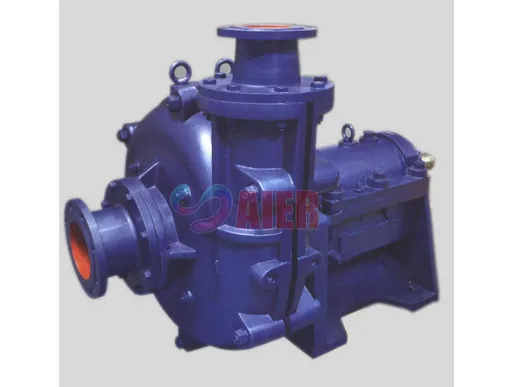Nov . 22, 2024 06:44 Back to list
high quality pump for wastewater factories
High-Quality Pumps for Wastewater Treatment Facilities
In today's industrial landscape, the significance of efficient wastewater management cannot be overstated. With growing populations and increasing industrial activities, wastewater treatment has become a critical challenge for municipalities and industries alike. High-quality pumps are integral to this process, forming the backbone of wastewater treatment facilities. This article explores the vital role of pumps in wastewater management and highlights the characteristics and benefits of high-quality pumps.
The Role of Pumps in Wastewater Treatment
Pumps serve as essential components within wastewater treatment plants. Their primary function is to transport wastewater from one point to another, ensuring that it undergoes the necessary treatment processes effectively. Various types of pumps are utilized in wastewater treatment, including centrifugal pumps, submersible pumps, and diaphragm pumps, each suited for specific applications.
In the initial stages of treatment, wastewater must be lifted and moved through screening and grit removal systems. Centrifugal pumps are often favored for these tasks due to their ability to handle large volumes of liquid while maintaining efficiency. As wastewater moves through the treatment process, pumps are required to circulate and transfer water between sedimentation tanks, filters, and disinfection units, necessitating reliable and high-performance pumping solutions.
Characteristics of High-Quality Pumps
When selecting pumps for wastewater applications, several factors come into play. High-quality pumps exhibit distinct characteristics that ensure longevity, reliability, and efficiency.
1. Durability and Corrosion Resistance Wastewater is inherently corrosive and contains various solids and chemicals that can degrade standard materials. High-quality pumps are constructed from durable materials, such as stainless steel or high-grade polymers, designed to withstand the harsh conditions found in wastewater environments.
2. Energy Efficiency Energy consumption represents a significant portion of operating costs in a wastewater treatment facility. High-quality pumps are engineered for energy efficiency, minimizing power usage while maximizing flow rates and performance. This not only reduces operational costs but also contributes to environmental sustainability.
3. Reliability Unscheduled downtime can be costly and disruptive. High-quality pumps are built for reliability, featuring advanced sealing technologies and maintenance-friendly designs. Regular maintenance indicators and automation capabilities further enhance operational reliability, allowing facilities to detect potential issues before they result in failures.
high quality pump for wastewater factories

4. Performance Adaptability The demands of wastewater treatment fluctuate based on various factors, including inflow rates and seasonal variations. High-quality pumps are designed to adapt to these changing conditions without compromising performance. Variable frequency drives (VFDs) can be integrated to allow for dynamic adjustments to flow rates, improving process efficiency.
Benefits of High-Quality Pumps
Investing in high-quality pumps for wastewater treatment facilities offers numerous benefits, enhancing both operational efficiency and environmental compliance.
1. Cost Savings Although high-quality pumps may come with a higher initial investment, the long-term savings associated with reduced maintenance, lower energy costs, and extended service life ultimately justify the expense.
2. Enhanced Treatment Outcomes Reliable and efficient pumping systems ensure that wastewater is processed effectively, resulting in better treatment outcomes. This is crucial for meeting regulatory standards and protecting water resources.
3. Improved Safety High-quality pumps often include safety features like automatic shutoff capabilities and monitoring systems that enhance the safety of operations for personnel and the surrounding environment.
4. Sustainability As industries and municipalities strive to minimize their environmental impact, high-quality pumps contribute to sustainability efforts through efficient resource management and compliance with environmental regulations.
Conclusion
In summary, high-quality pumps play an indispensable role in the effective management of wastewater treatment facilities. Their durability, energy efficiency, reliability, and adaptability make them essential investments for municipalities and industries aiming to enhance their wastewater treatment processes. By prioritizing the selection of high-quality pumps, stakeholders can ensure efficient operations, compliance with environmental standards, and a commitment to sustainable resource management in an increasingly water-conscious world.
-
Top Submersible Pump Companies High Quality Manufacturers & Suppliers in China
NewsJul.08,2025
-
High Quality Seal for 5 Inch Dredge Pump Reliable China Manufacturer & Supplier
NewsJul.08,2025
-
High-Efficiency Slurry Sand Pump from Leading China Manufacturer – Durable & Reliable Solutions
NewsJul.07,2025
-
High-Quality Slurry Pump Made in China Durable Steel Mill Slurry Pump & Parts
NewsJul.07,2025
-
High Quality Excavator Dredge Pump Manufacturer & Suppliers from China – Reliable, Durable, Efficient Solutions
NewsJul.07,2025
-
Wholesale Slurry Pump Closed Impeller Supplier High Efficiency China Slurry Pump Closed Impeller
NewsJul.06,2025
